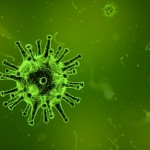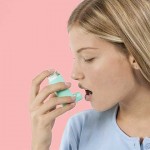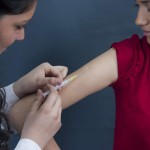
Dengue Fever
Dengue Fever is a viral disease, transmitted by the infective bite of a particular mosquito known as Aedes Aegypti. Human being develops the disease after 5 – 6 days of being bitten by an infective mosquito. It occurs in two forms: Classical Dengue fever also known as “break-bone” fever and Dengue Haemorrhagic Fever (DHF) which is life-threatening. It is very common after the rainy season. It is highly contagious and spreads from one person to another through mosquito bites. It is widespread in tropical and sub-tropical regions. It is a very common disease in India for the last two decades. Dengue can affect everybody, irrespective of their age and gender. However, deaths are common amongst children during DHF outbreak.
Symptoms
Symptoms usually develop within 3-14 days after being exposed to the dengue virus (also known as incubation period). The average incubation period is around 4-7 days.
Symptoms of dengue are:
1. Sudden-onset fever
2. Headache (typically located behind the eyes)
3. Muscle and joint pain
4. Rash
5. Chills (shivering)
6. Facial flushing
7. Loss of appetite
8. Sore throat
9. Abnormal bleeding such as nosebleeds, bleeding gums and/or blood in your urine.
Causes
Dengue virus is an RNA virus. Transmission of this virus occurs in a cycle. An infected human is bitten by a female mosquito. The infected mosquito then bites another human, and the cycle continues.
MOSQUITO
Aedes aegypti mosquitoes most commonly bite at dusk and dawn, indoors, in shady areas, or when the weather is cloudy. They can bite and spread infection at any time of day and all year long.
The mosquitoes prefer to breed in areas of stagnant water, such as flower vases, uncovered barrels, buckets, water coolers and discarded tires. Some of the dangerous areas are wet floors and toilet tanks, as they allow the mosquitoes to breed in the residence.
Although the lifespan of an adult A. aegypti is two to four weeks depending on conditions, the eggs can be viable for over a year in dry state. This allows the mosquito to reappear after a cold winter or dry spell.
Diagnosis
A probable diagnosis is based on the occurrence of fever along with some of the following symptoms.
• Nausea and vomiting
• Rash
• Generalized pain
The diagnosis also takes into account whether the suspected person lives in endemic (high prevalence) area.
Microscopic examination: This is done in order to detect dengue. The earliest change detectable is a low white blood cell count which may then be followed by low platelets and metabolic acidosis.
Rapid diagnostic test: It is an excellent method for specifically detecting anti-dengue IgG and IgM antibodies. The test can detect all four serotypes of dengue.
Treatment
There is no specific medication for the treatment of dengue infection. Persons suspected of dengue can use analgesics (pain relievers) and avoid those containing aspirin. They should take plenty of fluids, rest and consult a physician at the earliest possible. If the condition does not improve after 3-5 days, then one should seek further medical advice.
Prevention
There is no vaccine to prevent dengue yet. The best way to prevent getting the disease is to avoid being bitten by a mosquito. Some of the preventive measures are as follows:
• Use insect repellents and mosquito nets to avoid being bitten. Bodies could be protected from mosquito bite by applying insect repellent (containing DEET) on the clothes and exposed part of the body especially when you travel to Dengue Fever endemic areas.
• Wear long-sleeved clothes and long trousers while going outdoors.
• The best preventive measure for residents living in areas infested with Aedes aegypti is to clean the places where the mosquito lays their eggs, primarily artificial containers that store water. Items that collect rainwater or are used to store water (for example, plastic containers, drums, buckets, or used automobile tires) should be cleaned or discarded. Pet watering containers and flower vases should be emptied and scrub dried at least once a week. This will eliminate the mosquito eggs, larvae and reduce the number of mosquitoes present in these areas.
• The risk of being bitten by mosquitoes can also be reduced by screening the windows and doors.
• Pesticide spraying or “fogging” can also be effective.
Complications
A person with dengue may develop a severe and life-threatening form of dengue known as dengue shock syndrome. This may be accompanied by a sudden and severe drop in blood pressure. Other symptoms of dengue shock syndrome are as follows:
• Cold, clammy skin
• A weak rapid pulse
• Dry mouth
• A reduced flow of urine
• Fast breathing
Reference: AIIMS










